#Taller Leñateros
Text
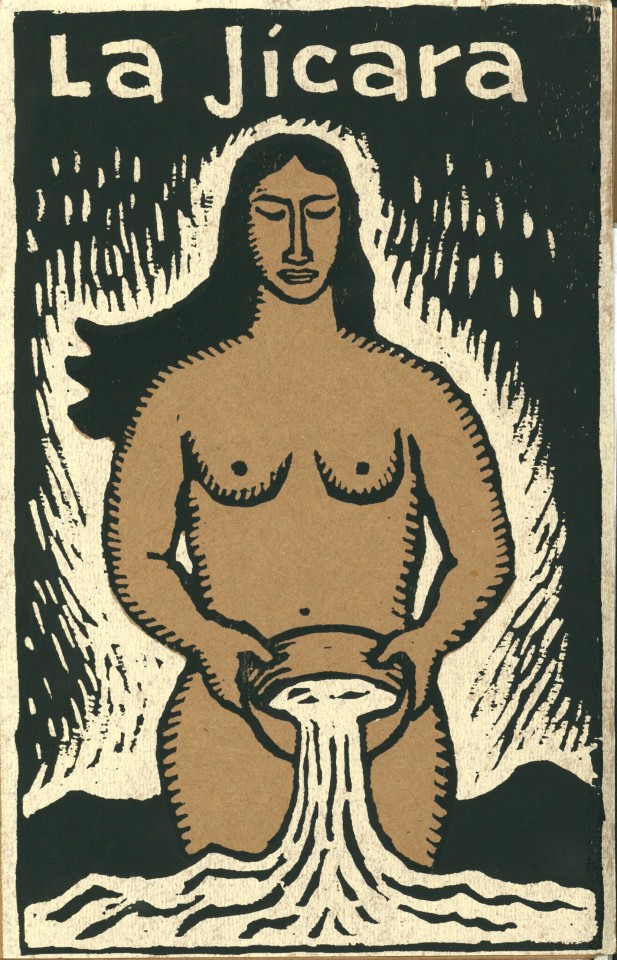
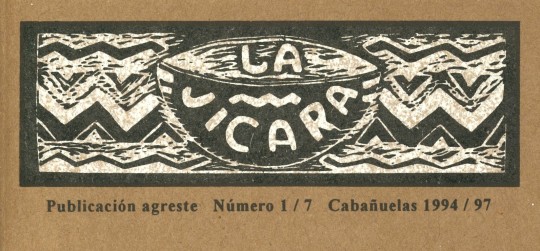


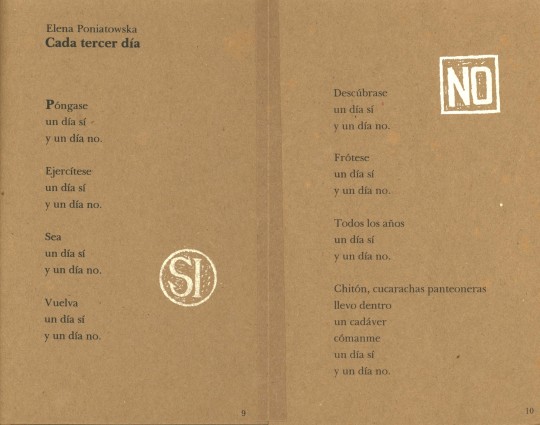

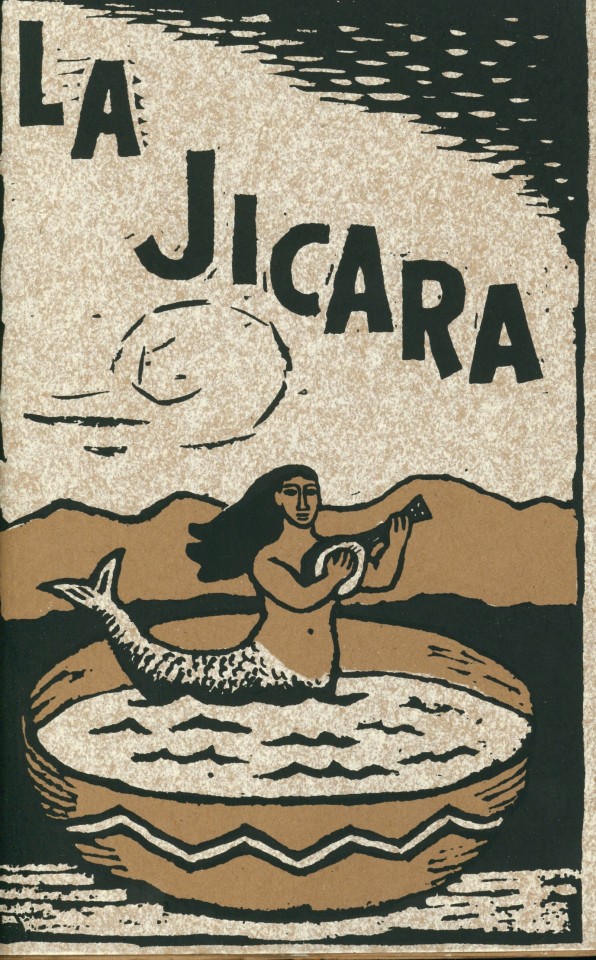
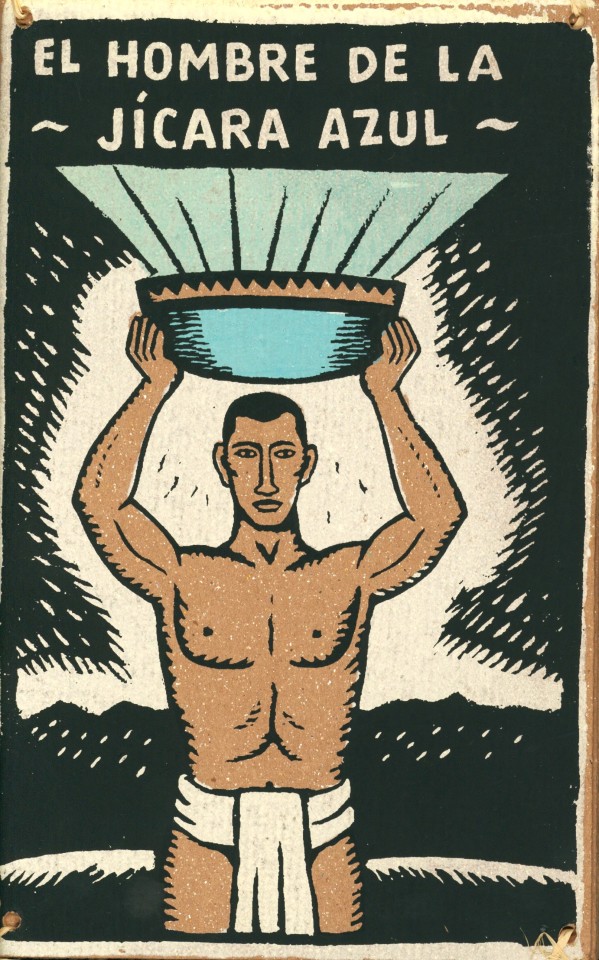
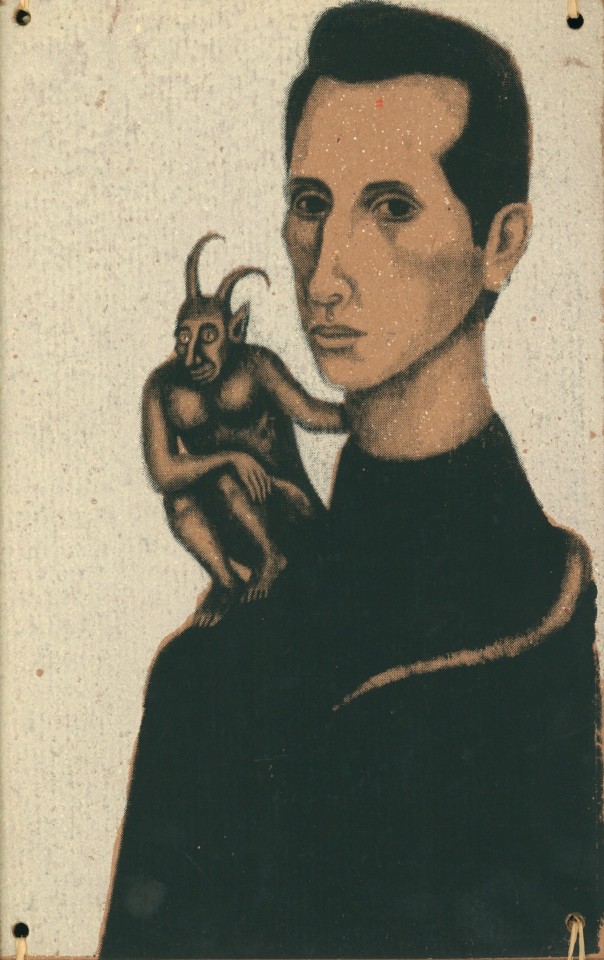

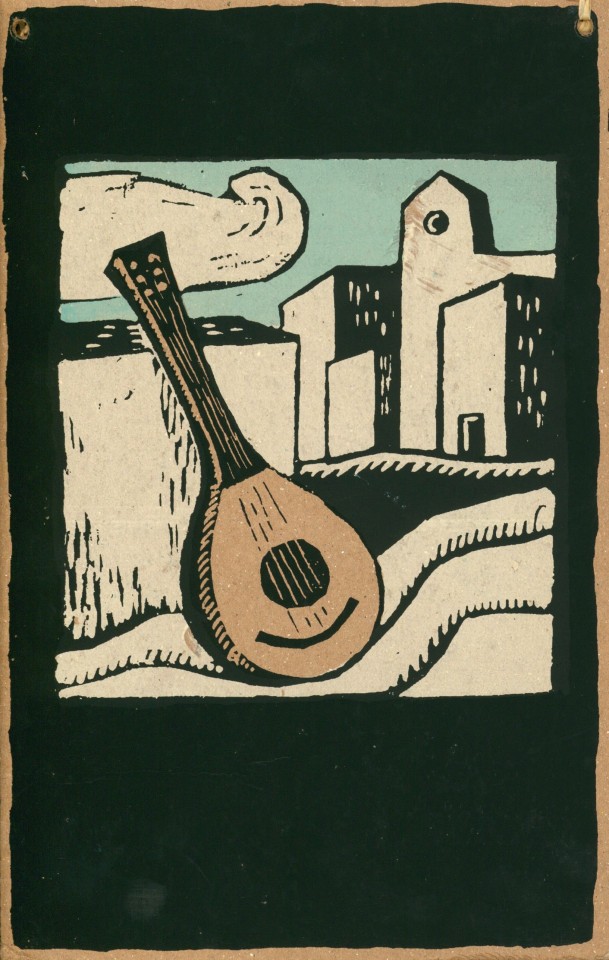
It's Fine Press Friday!
On this final Friday of 2023, we end the year with a slightly different fine-press production, issues 1 and 7 of the Mexican arts journal La Jícara, published in San Crístobal de Las Casas, Chiapas, México by Taller Leñateros in 1994 and 1997. These issues were silkscreen printed on craft paper sprinkled with atol agrio, a characteristic masa-drink of San Cristóbal de las Casas, under the direction of Taller Leñateros founder Amber Past and art director Estela Hernández.
Past, an American-born Mexican poet, founded Taller Leñateros in 1975 as a Mayan book arts collective in Chiapas. La Jícara, which refers to a bowl or cup made from a gourd, was developed as a literary, artistic, and historical journal to preserve and promote Mayan and mestizo culture.
View another work by Taller Leñateros.
View more Fine Press Friday posts.
#Fine Press Friday#fine press fridays#La Jícara#journal#magazine#Taller Leñateros#Chiapas#Mayan#Mexican art#Mayan art#Amber Past#Estela Hernández#fine press books
91 notes
·
View notes
Photo

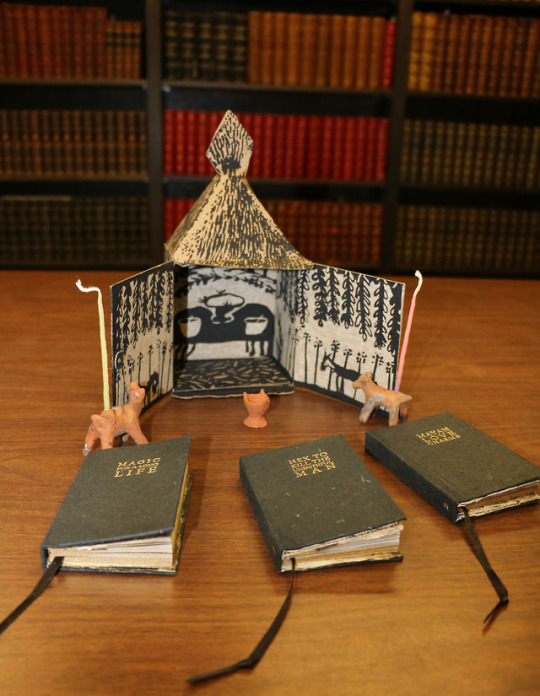
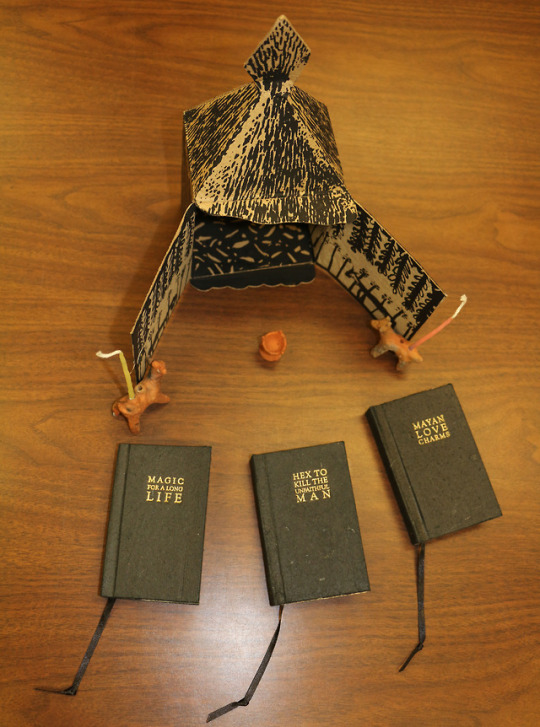
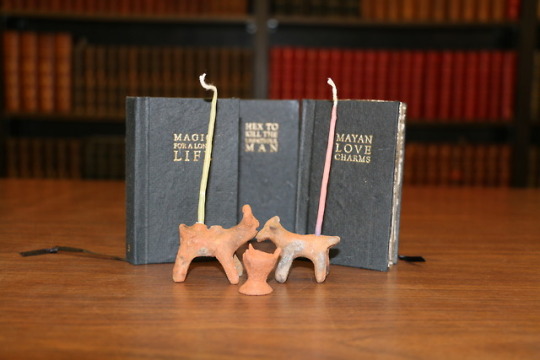
#ArtsyFartsyFriday!
We will be featuring artists’ books on Fridays under the tag #ArtsyFartsyFriday!
Here’s one of my favorite artists’ books, Portable Mayan Alter. This artistic work was created by Taller Leñateros (The Woodlander’s Workshop), an indigenous publishing house in Chiapas, Mexico founded by poet Ámbar Past. This book features a cardboard case in the form a traditional Mayan house that opens up to an altar with two side panels. It also includes a clay pot-shaped incense burner, tiny colored candles, two clay candle holders in the form of animals, and three small pocket books illustrated by Mayan artists: Mayan Love Charms (Petra Hernández), Magic for a Long Life (Manwela Kokoroch), and Hex to Kill the Unfaithful Man (Tonik Nibak).
-Micaela
X-Collection (N7433.35.M6 P57 2007)
Past, Ámbar. Portable Mayan Altar: Pocket Books of Mayan Spells. San Cristobal de Las Casas, Mexico: Taller Leñateros, 2007.
Catalog record
Taller Leñateros website
#specialcollections#artsyfartsyfriday#bookarts#artistbook#gif#taller leñateros#Ámbar Past#mexico#mayan#micaela
143 notes
·
View notes
Text
Books On Books Collection - Taller Leñateros
Books On Books Collection – Taller Leñateros
Incantations (2005)
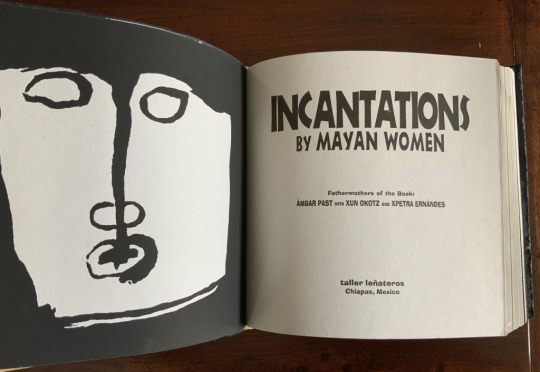
Incantations (2005)
Mayan Women
Fathermothers of the Book: Ámbar Past with Xun Okotz and Xpetra Ernándes
Casebound, glued. H250 x W250 x D50 mm, 194 pages. Acquired from Taller Leñateros, Chiapas, Mexico, 23 July 2020.
Acquisition of this anthology of magical songs and ritual paintings of Tsotsil women from the Highlands of Chiapas came primarily from an interest in its…
View On WordPress
0 notes
Photo
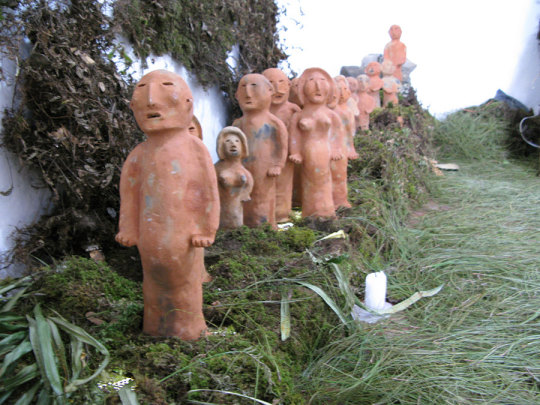
From Galeria Muy:
MARUCH MÉNDEZ
K’atixtik, San Juan Chamula, Chiapas
1957
Maruch Mendez, a native of K’atixtik, a hamlet in San Juan Chamula, has brought new life into the nearly extinct Chamula tradition of molding household objects from clay. Firing in an outdoor pit, she transforms earthly figures that capture the mythical imagination of her ancestors and her own life, often inspired by the wisdom of the Chamula oral tradition. Her clay sculptures are often an amalgam of earth, stones, bricks, moss, flowers and tree trunks, bolstered by accompanying videos that narrate the stories of her creations.
Like many other “outsider artists”, Mendez does not identify as an “Artist” herself, but as someone who rearticulates her community’s knowledge and imagination through indigenous and modern media to create an innovative corpus.
As a young woman, Maruch Méndez lived alone in the highlands of Chiapas for six years. “The forest was my school,” explained the monolingual Tsotsil-speaker. Later on, she became a leading member of Taller Leñateros, a women’s cooperative that created handmade paper and books. For over 15 years, she was the creative partner with the poet Ambar Past, and performed in chanted narrative poetry readings in Chiapas, Mexico City, San Antonio (Texas), and Paris (France).
Currently Mendez works on her creative installations while living in her native township, and working as a pastor, farmer, and an adoptive mother of six.
11 notes
·
View notes
Text
Artesanos de Leñateros denuncian despojo en San Cristóbal
Artesanos de Leñateros denuncian despojo en San Cristóbal
Artesanos de Leñateros denuncian despojo en San Cristóbal
Artesanos trabajadores de Leñateros denunciaron el desalojo de la vivienda que ocupa el taller a pesar de que existen documentos de compra.
Con la intención de valorar, preservar y enaltecer el arte maya prehispánico y contemporáneo hace casi medio siglo surgió el Colectivo editorial artesanal Taller Leñateros.
Javier Silverio…
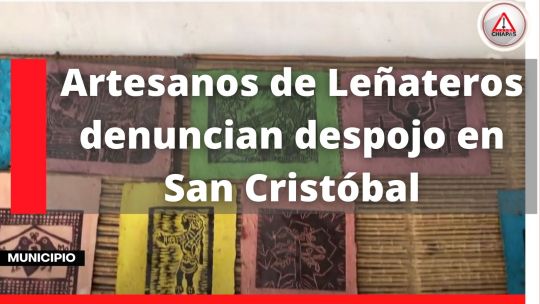
View On WordPress
#artesanos car club#artesanos del cristal#artesanos del fuego#artesanos del mar#artesanos don bosco#artesanos ecuatorianos#artesanos edad media#artesanos famosos#artesanos mexicanos#artesanos peruanos
0 notes
Photo
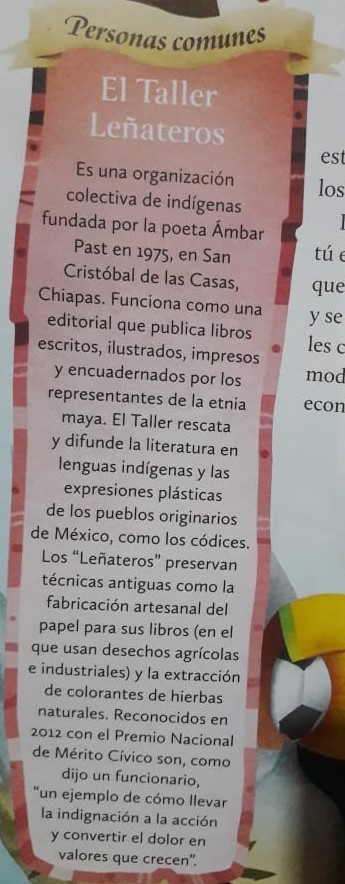
Rafael Muños Saldaña, (2013). El taller leñateros. Vivir los valores niños de valor, 8, 38. México DF
Párrafo expositivo:
Este párrafo entra en la clasificación de los párrafos expositivos ya que en se encuentra una explicación en la cual se menciona de que trata “El taller de los leñateros”, la cual lleva consigo características de dicha clasificación las cuales son: coherencia, secuencia, una introducción y una conclusión; y su contenido te ínsita a querer saber más sobre el tema. Este texto trata sobre preservar tanto las técnicas como las lenguas indígenas, para esto se implementó una organización colectiva de indígenas. El tipo de enlace utilizado en esta ocasión fue de unión “y”; su unidad fue buena ya que siempre se mantuvo en el tema; su cohesión también es buena ya que el texto es claro y entendible; tiene buena coherencia puesto que lleva una secuencia comprensible.
Karla Itzel Blanco López
0 notes
Photo
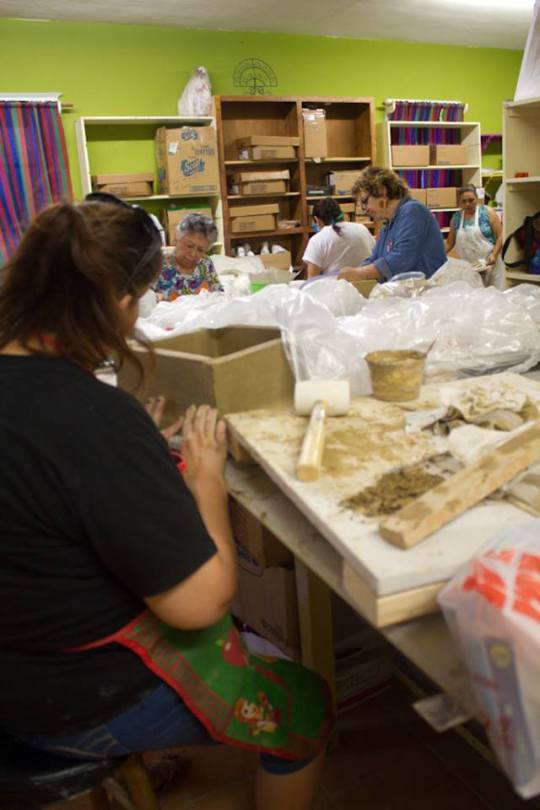
Esperanza Peace and Justice Center: MujerArtes Clay Cooperative
“At the MujerArtes studio the women, with the guidance of experienced ceramicists, shape the clay into historic snapshots of their lives as workers, heads of households and marginalized women in a country where they have always had to struggle. International artists/cooperatives Irene Aguilar, Enedina Vasquez, Taller Leñateros and Domitila Dominguez are invited for annual cultural exchanges.Through cooperative efforts, the women create an environment where each woman is a teacher and student by way of their creativity and cultural experiences.”
Source
0 notes
Photo
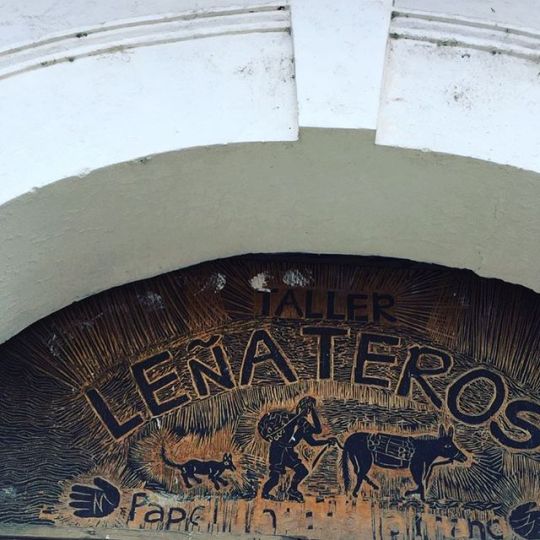
Talleres Leñateros, a cooperative of indigenous women who make beautiful paper objects from recycled materials.
0 notes
Photo
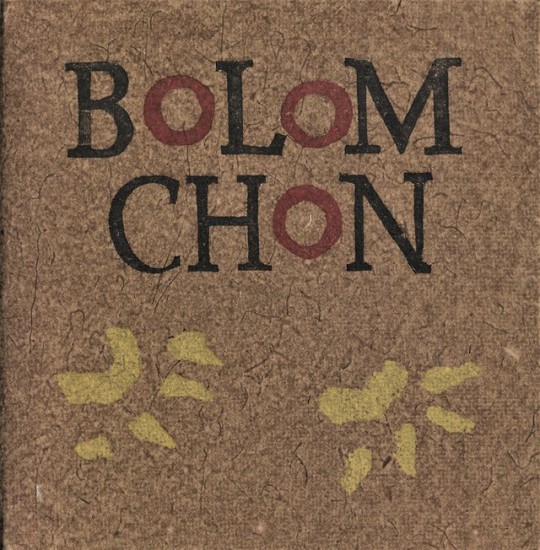
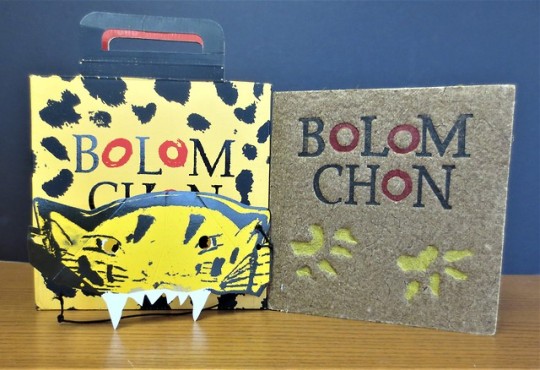
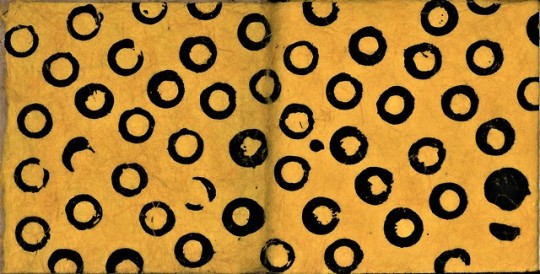

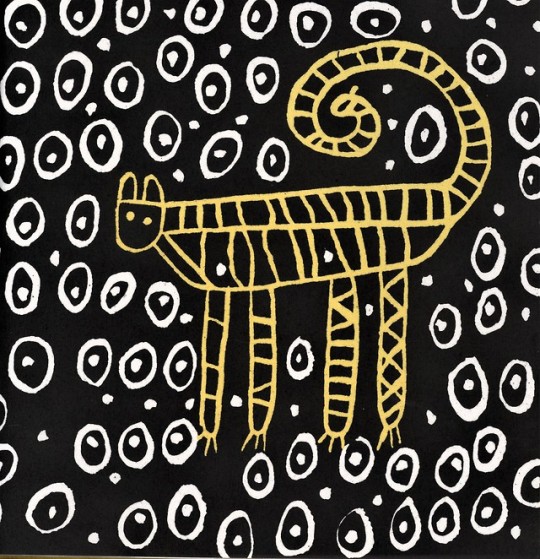
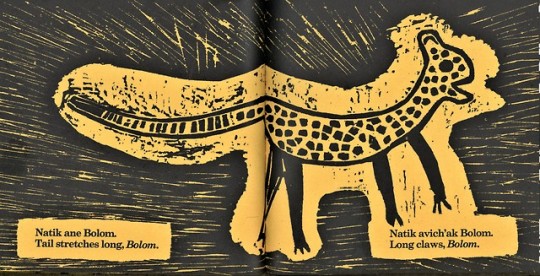
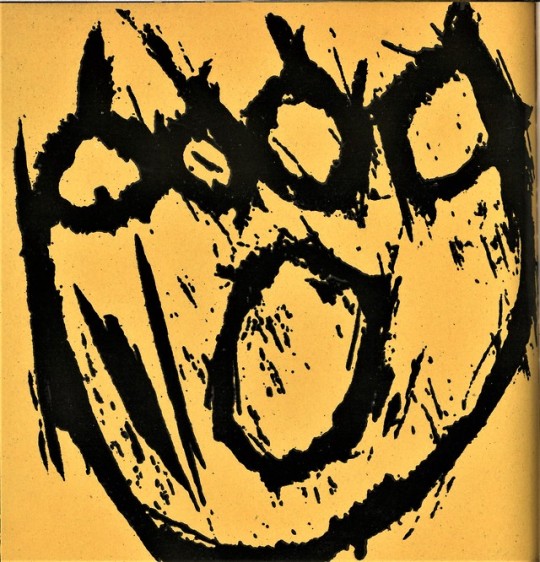
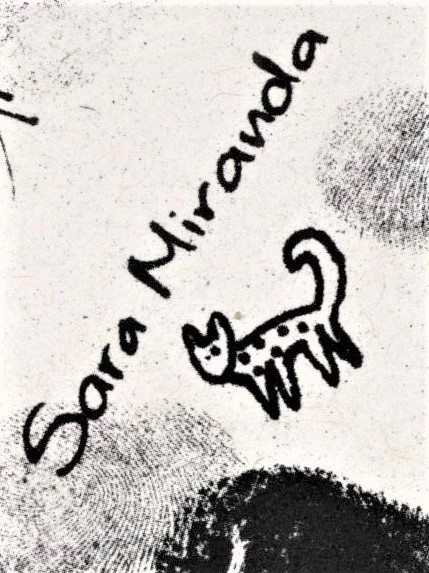
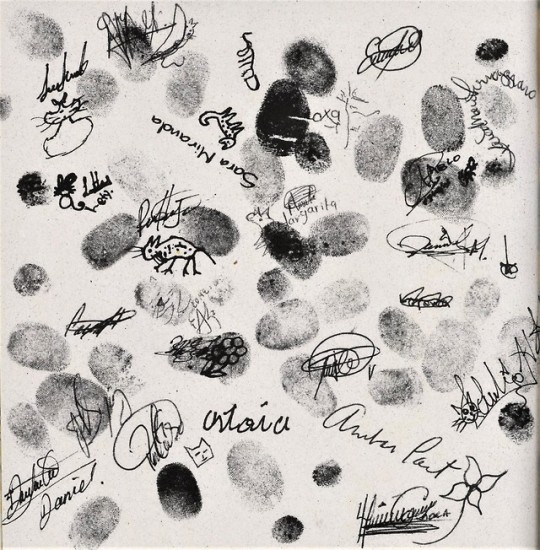
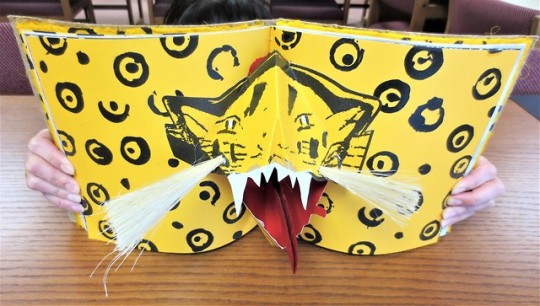
A Bolom Chon Caturday
For this Caturday we present the Mayan artists’ book Bolom Chon produced by the indigenous Mexican publishing workshop Taller Leñateros in 2008, with texts in Tzotzil Maya by Maria Tzu, Rominka Vet, and Maruch Méndes Péres, and translation and English texts by Ámbar Past with Sara Miranda and Tom Slingsby.
Bolom Chon was inspired in the canto Tzotzil Maya, the stomp of dancing feet, the masks and bright colors of the fiesta of the jaguar, the warm hands and hearts of the book artisans who brought it to life during the first days of 2008, in the shadow of the grand avocado tree that covers Taller Leñateros.
But what is Bolom Chon? For one thing, Bolom Chon is the title of a Mayan song, a favorite among the Tzotzil who live in the highlands of Chiapas in southern Mexico. But few seem to agree on exactly what Bolom Chon actually is. One Tzotzil claims that Bolom Chon is a jaguar like those that still live in the Lacandon jungle, its spotted skin is the starry night. Another says that it represents all the Animal Kingdom: tigers, deer, coyotes, and possums. A man who plays the harp said that Bolom Chon is a Dancing Tiger. But grandmother Maria Tzu insists it doesn’t mean anything at all, it is simply the name of a song the Fathermothers made up when the world was created, so the people could have fun at the Fiesta, stomping their feet on the surface of the Earth.
At the time of this publication Taller Leñateros (The Woodlanders’ Workshop) was the only publishing house in Mexico run by Mayan artists. Founded in 1975 by poet Ambar Past, the taller is located in San Cristóbal de las Casas, Chiapas. This book was produced using silkscreen, letterpress, xylography, and die cuts for the jaguar mask and the pop-up of the jaguar with maguey fiber whiskers. The cover is made from recycled cardboard boxes, and the book includes a CD recording of Tzotzil children singing various versions of Bolon Chon with their grandmother.
View more Caturday posts.
#Caturday#cats#jaguars#Bolom Chon#Taller Leñateros#Chiapas#Mexico#Tzotzil#Pop-up books#indigenous publishing#Maya#Ambar Past#the internet is for cats
48 notes
·
View notes